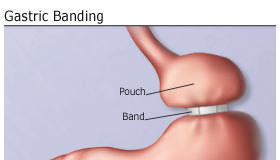Weight Loss Update: FDA Panel Recommends Making Lap-Band Surgery Available To...
The procedure may help more people shed the pounds. But it will also fill the coffers of surgeons, hospitals, and a global specialty pharmaceutical company. About 100,000 people each year have laparoscopic surgery to implant a small, flexible band—the Lap-Band, from Allergan, Inc.—on their stomach. It’s designed to help them lose weight by dramatically limiting their food intake.
GingiPhase Really Worked For Me…
GingiPhase really worked for me. I had pockets from 3-6 mm all over, and last September the dental hygienist told me I would need some rather unpleasant procedures to deal with this issue if it didn’t get better (I’m already getting cleanings every four months instead of the typical six). I got three bottles of GingiPhase...
Pleased With Improvements In Gum And Tooth Health
I have had laser surgery to help with loose teeth, including one near a back molar that has shifted on an angle. There was some bone loss and receding of my gums with a slight amount of bleeding. When taking GingiPhase, on a scale of 10, the tooth looseness improved from a 5 to a 1, so I am very pleased with that.
The Cost Of Losing Weight
After a run of food-focused holiday get-togethers, many people vow to sign up for a weight-loss program during the early part of the year. How much do weight-loss programs cost? Price quotes from three diet programs, based on a goal of losing 25 pounds, run the gamut from $65 to more than $700, though the price tag on the low end of the spectrum doesn't include the cost of groceries.
Essential Oil Pill Prevents PMS, Study Suggests
A pill containing a mix of essential oils has been shown to significantly reduce the symptoms of premenstrual syndrome (PMS). Researchers writing in BioMed Central's open access journal Reproductive Health tested the tablets by carrying out a randomised, controlled trial in 120 women.
More Breaks From Sitting Are Good For Waistlines And Hearts
It is becoming well accepted that, as well as too little exercise, too much sitting is bad for people's health. Now a new study has found that it is not just the length of time people spend sitting down that can make a difference, but also the number of breaks that they take while sitting at their desk or on their sofa. Plenty of breaks, even if they are as little as one minute, seem to be good for people's hearts and their waistlines.
Room Light Before Bedtime May Impact Sleep Quality, Blood Pressure And...
According to a recent study accepted for publication in The Endocrine Society's Journal of Clinical Endocrinology & Metabolism (JCEM), exposure to electrical light between dusk and bedtime strongly suppresses melatonin levels and may impact physiologic processes regulated by melatonin signaling, such as sleepiness, thermoregulation, blood pressure and glucose homeostasis.
Microbes In Our Gut Regulate Genes That Control Obesity And Inflammation
If you are looking to lose weight in the coming year, you may need help from an unexpected place: the bacteria in your gut. That's because scientists have discovered that the bacteria living in your intestines may play a far more significant role in weight loss and gastrointestinal problems than ever imagined.
Taking More Steps Every Day Can Help Ward Off Diabetes
Simply taking more steps every day not only helps ward off obesity but also reduces the risk of diabetes, finds a study published on the British Medical Journal website. While several studies have shown that physical activity reduces body mass index and insulin resistance -- an early stage in the development of diabetes -- this is the first study to estimate the effects of long-term changes in daily step count on insulin sensitivity.
Researchers Discover Way To Halt Lung Inflammation In Animal Models
Acute inflammation of the lung is a poorly recognized human disease that develops in surprising and unexpected ways. The acute lung injury (ALI) or adult respiratory distress syndrome (ARDS) is a vital new concern for soldiers, but it can develop in anyone during a systemic infection, after severe trauma, as a result of bone fracture, following severe burns and in many other ways as well-- the initial cause may have nothing apparent to do with the lung itself.














